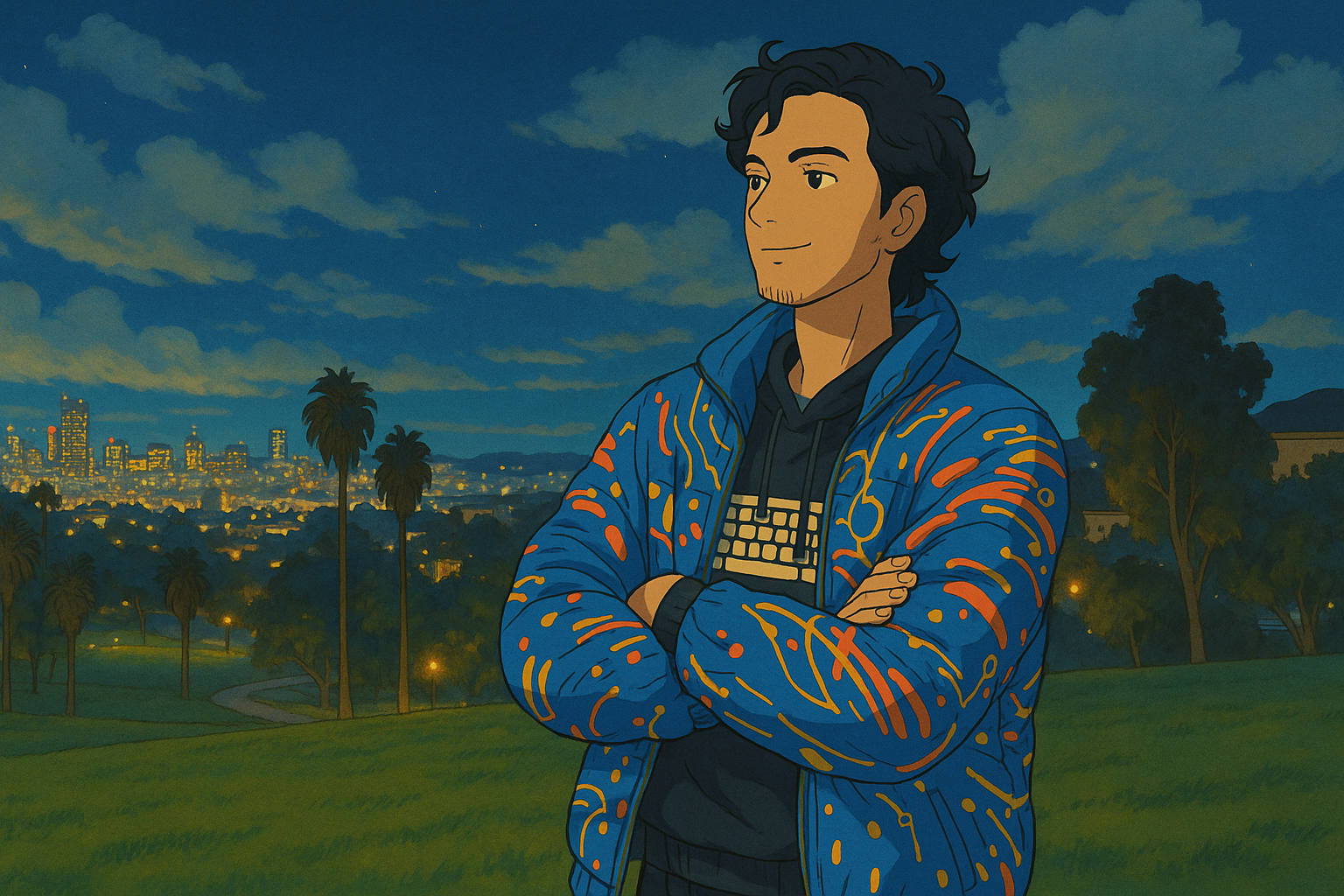Lessons from my journey to become the founder I wish I'd met earlier
I celebrate another revolution around the great big ball of fire today. This was a big year for me: I founded my first product startup, all solo.
I’m doing something really hard but I realize I’ve never written down my guiding principles about why I do this. This article is mostly a reminder for me: on what it takes to achieve greatness.
Here’s what I’ve learned so far:


Learning to fail with joy
I still remember my first program - in VBScript 6 written on an XP machine in Notepad - a textbox came up, where when you typed your name, the computer wrote back “hi [name]!”
At that time, it was the greatest thing ever. I made that computer do what I want. I summoned a magical box with my name inscribed in it. I felt like a sorcerer unlocking the arcane arts.
I know now that it’s not one of the most sophisticated programs ever. But if I hadn’t written that I wouldn’t have been able to make a living writing code.
In the beginning, whatever we do generally isn’t good. But find the joy and keep doing it, and it will add up.
Recently, I found myself running across the Golden Gate Bridge with one of the smartest investors in Silicon Valley, about to throw up.
That’s when he told me that even though each step feels hard, just put on a smile and keep taking one more.
An ex Navy SEAL who also held the world record for 4100+ pullups in 13 hours reinforces this whenever I complain during our workouts together: it always hurts and feels bad at the start. Eventually it won’t.
What I’ve discovered: the difference between people who build great things and those who don’t isn’t talent. It’s that they learned to smile while sucking at something. When you fail and make bad stuff with joy, you get better faster.
My genius friends are all a little crazy
I live with a 19-year-old who’s been working on memory for AI for the last 2 years. That’s over 10% of his life dedicated to AI memory. Ask him anything on this topic, he’ll tell you things that you can never find on Google or ChatGPT. How does he know all this?
Another genius founder and a new friend of mine learnt how to code on a Nokia. Can you imagine — a T9 keyboard to type out HTML on? Have you seen the number of < in HTML, do you even know how to write this on a T9? He’s now running a successful product with over 16k+ GitHub stars. How was he able to stick through all the pain?
Watching these obsessed people made me realize something: the only way you can do something every single day, taking up the majority of your time, is if you’re genuinely in love with it. Not simply interested, nor passionate. In love. To the point where typing HTML on a T9 keyboard feels like play.
That kind of love is what lets you rack up the hours. Which lets you suck quicker. Which lets you become great.
The mistake of not having feedback loops
For a long time, I thought building a startup meant writing perfect code. I’d disappear for months, crafting beautiful systems that nobody ever used. I was getting great at coding, but terrible at startups.
Then I joined buildspace and saw this dude two years ago who inspired and taught thousands.
He showed me the fundamental early stage startup feedback loop: ship, get feedback, improve, repeat.
That’s when I realized: I wasn’t doing the whole thing. If you want to be a great writer, you can’t just write—you need readers. If you want to found a startup, you can’t just code—you need customers.
The pattern I started noticing everywhere: greatness comes from doing the complete cycle, not perfecting one part.
Get that set up as soon as you can, however you can, and remember that it’s only you who has to make sure that you’re doing it correctly.
Finally, community
Years ago, I was probably the most antisocial person you’d meet. I tried to do everything on my own. It was hard and the low times felt really low.
Then something shifted. Turns out, finding people who’re having fun alongside you makes everything easier.
I’m now fortunate to be in the Solo Founders Program.
People around me are in the same journeys, know exactly what I’m talking about, share my excitement, and give constructive feedback from the same values.
Most importantly, we all share our failures openly. Sometimes we find help, but even knowing that others are facing hardships makes our own a bit easier.
Suddenly, the journey doesn’t feel lonely. It feels like an adventure you’re on together.
Why this matters
I’ve thought a lot about what drives the great people I know. And I think the answer is simple: it feels great to build something and be good at it.
I still remember the rush from that first “hello world” moment. And at every step and growth, that feeling never went away. It just got bigger.
Every problem you solve, every user you help, every impossible thing you make possible builds on that same foundation.
Here’s what nobody tells you about building great things: it’s mostly about becoming the kind of person who can handle the journey.
Someone who finds joy in the struggle. Someone who falls in love with problems worth solving. Someone who finds their people.
The world doesn’t need another perfect product. It needs what happens when you combine your weird obsessions with willingness to fail.
So go be weird. Go fail. Go build something only you would build.
We’re all waiting to see what you come up with.
Increase engagement and retention
Our whitelabel AI vibe coding platform allows your users to customize and build exactly what they need, on top of your platform.
My customers say that this is the best way to increase engagement and retention in 2026.
Curious? Check out Giga Catalyst to learn moreOr, fill out this form and I'll personally reach out to show you how it works:
